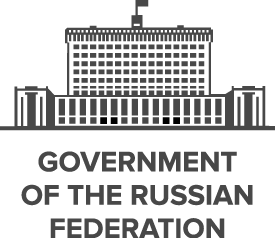Founded in the 12th century, the Principality of Muscovy was able to emerge from over 200 years of Mongol domination (13th-15th centuries) and to gradually conquer and absorb surrounding principalities. In the early 17th century, a new ROMANOV Dynasty continued this policy of expansion across Siberia to the Pacific. Under PETER I (ruled 1682-1725), hegemony was extended to the Baltic Sea and the country was renamed the Russian Empire. During the 19th century, more territorial acquisitions were made in Europe and Asia. Defeat in the Russo-Japanese War of 1904-05 contributed to the Revolution of 1905, which resulted in the formation of a parliament and other reforms. Repeated devastating defeats of the Russian army in World War I led to widespread rioting in the major cities of the Russian Empire and to the overthrow in 1917 of the imperial household. The communists under Vladimir LENIN seized power soon after and formed the USSR. The brutal rule of Iosif STALIN (1928-53) strengthened communist rule and Russian dominance of the Soviet Union at a cost of tens of millions of lives. After defeating Germany in World War II as part of an alliance with the US (1939-1945), the USSR expanded its territory and influence in Eastern Europe and emerged as a global power. The USSR was the principal adversary of the US during the Cold War (1947-1991). The Soviet economy and society stagnated in the decades following Stalin’s rule, until General Secretary Mikhail GORBACHEV (1985-91) introduced glasnost (openness) and perestroika (restructuring) in an attempt to modernize communism, but his initiatives inadvertently released forces that by December 1991 splintered the USSR into Russia and 14 other independent republics.
Following economic and political turmoil during President Boris YELTSIN's term (1991-99), Russia shifted toward a centralized authoritarian state under the leadership of President Vladimir PUTIN (2000-2008, 2012-present) in which the regime seeks to legitimize its rule through managed elections, populist appeals, a foreign policy focused on enhancing the country's geopolitical influence, and commodity-based economic growth. Russia faces a largely subdued rebel movement in Chechnya and some other surrounding regions, although violence still occurs throughout the North Caucasus.
Russia is a semi-presidential federation.
Members:
Resources
Displaying 141 - 145 of 1046Regional Law No. 170-OZ-2 “On ensuring fertility of agricultural land”.
The scope of this Regional Law shall be to ensure fertility of agricultural land by owners, landlords, land tenants and leaseholders. The main arrangements for ensuring soil fertility shall be: (a) elaboration and realization of regional programs; (b) soil, agrochemical, phytosanitary, ecological and toxicological inspection; (c) investments in soil conservation and reproduction; and (d) improvement of soil quality and fertility.
Regional Law No. 14-oz “On objects of cultural heritage”.
This Regional Law regulates the issues of conservation, management, promotion and state protection of the objects of cultural heritage. Regional administration shall be responsible for establishment of the boundaries of protection zone of the objects of cultural heritage, land tenure regime and land-use planning within land areas containing objects of cultural heritage and decision-making related to classification of the objects of cultural heritage. Objects of cultural heritage shall be subject to mandatory state registration.
Regional Law No. 69 “On establishment of the value of land plots within inhabited areas destined for agricultural production”.
This Regional Law establishes that plots of agricultural land within the boundaries of inhabited areas and destined for agricultural production, free of constructions and edifices, allotted on lease on condition of permanent (open-ended) land tenure as a result of renewal of lease contract or renewal of the right of hereditary possession of such land with the right of lease can be purchased in ownership by lease holder at the cost of 15 percent of cadastre value of such plots of land.
Regional Law No. 402-OZ “On the modalities of calculation of land lease fees and terms and conditions of payment thereof”.
This Regional Law establishes the modalities of calculation of land lease fees, terms and conditions of payment thereof for public land and for land with undefined land ownership. Rates of land lease fees shall be established in percentage depending upon purposeful and authorized types of land tenure. Land lease fees shall be established on annual basis. This Regional Law contains calculation formula for land lease fees.
Regional Law No. 12-ZRH amending Regional Law No. 12 “On protected areas”.
Article 4 shall be amended to add the following wording: “Citizens, associations and non-governmental non-commercial organizations operating in the sphere of environmental protection shall be granted the right to render assistance to state bodies in realization of arrangements related to organization, protection and management of protected areas of regional significance”.
Amends: Regional Law No. 12 “On protected areas”. (2012-10-05)


